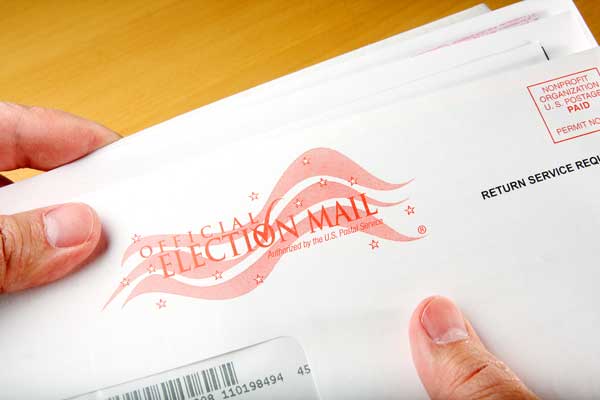Greater
Voice
Home » What We Do » Greater Voice » Policy Initiatives
Public Policy Initiatives and Endorsements
GSI takes positions on local, state, and federal measures that impact our business community and the greater Spokane region. GSI has endorsed two measures on our ballots for the November 5, 2024 General Election. Here is more information about those measures and others.

2024 November General Election Policy Statements
I-2066: Protect the Use of Natural Gas
Initiative 2066 preserves natural gas as a cost-effective and reliable energy option, protecting especially underserved communities from the high costs of mandatory electrification. Spokane’s industries, particularly restaurants and manufacturers, rely on natural gas. Voting “Yes” safeguards our jobs and helps businesses avoid disruptive, costly, and needless transitions to electric-only systems where viable alternatives aren’t widely available. The initiative ensures energy diversity without compromising Washington’s clean energy goals, providing flexibility, stability, and an individualized on-ramp for residents and businesses alike.
Greater Spokane Inc. (GSI) fosters a vibrant business climate that supports economic growth, innovation, and sustainability. A key part of this vision is ensuring that Washington state’s energy policies are balanced, practical, and allow for a range of energy choices that suit our region’s needs. As we tackle climate change in viable, practical terms the real costs of a clean energy transition absolutely cannot fall disproportionately on our rural and underserved communities.
For this reason, GSI fully endorses Initiative 2066, which safeguards natural gas as an essential energy option for homes, businesses, and industries in Spokane.
Over the past several years, GSI has battled restrictive measures aimed at phasing out natural gas. These measures threaten the stability of Washington’s energy landscape and place an undue burden on especially rural communities, harming Spokanites and our neighbors.
Protecting Families, Jobs, and Businesses
For the Spokane region, natural gas is not just a luxury—it is a necessity. It powers heating systems, appliances, and water heaters across some of Washington’s coldest climates and most remote homes. If natural gas is banned statewide, families would face steep conversion costs, often upwards of $40,000, to retrofit homes with electric alternatives. In a time of economic uncertainty, such additional burdens are unacceptable.
The business community, particularly in industries like manufacturing, hospitality, and food services, also depends on natural gas for operations. Many local restaurants, breweries, and food producers rely on gas for precision cooking and other critical functions. Eliminating natural gas as a choice before viable alternatives are readily available on the market will lead to job losses, stymied growth, and an increase in costs on everyday necessities.
Reliable and Affordable Energy
Washington needs an energy system that is both reliable and affordable. On average, natural gas bills are 33% lower than electric bills. At a time when utility companies are asking residents to reduce their power usage to accommodate grid constraints and transportation electrification, natural gas provides an essential on-ramp to accomplishing our area’s climate goals without brownouts, shutdowns, and other potentially deadly grid failures.
Preserving Energy Choice
Initiative 2066 does not force anyone to use natural gas. Instead, it ensures that families, businesses, and industries retain the ability to choose the energy sources that best meet their individual needs. Importantly, this initiative does not impede Washington’s clean energy goals but rather allows for a diverse and resilient energy portfolio for a timely and economical clean energy transition.
At GSI, we support an energy policy that encourages climate innovation while providing practical, affordable, and stable energy solutions for our community. We urge Washington voters to vote “Yes” on Initiative 2066 this November to protect our energy choices, our jobs, and our economic future.
I-2124: Opting Out of the State's Long Term Care Insurance
Initiative 2124 allows workers to opt out of WA Cares, giving individuals the freedom to choose long-term care solutions that fit their personal and financial needs rather than being locked into a mandatory, one-size-fits-all system. WA Cares provides only limited benefits, capped at $36,500, which is insufficient to cover even a few months of care. I-2124 promotes sustainable alternatives like tax-advantaged savings plans and other flexible financial tools for future care needs. I-2124 empowers workers to invest in long-term care options that offer certainty and adaptability, rather than relying on a bureaucratic, untested, and underfunded state program.
Greater Spokane Inc. (GSI) advances policy that empowers individuals, strengthens businesses, and promotes economic sustainability. With this in mind, we endorse Initiative 2124, which would make participation in the WA Cares program optional rather than mandatory.
WA Cares, as it stands, imposes a one-size-fits-all payroll tax that does not meet the diverse needs of Spokane workers and families. The cost to provide long-term care is very real and individual needs vary greatly. Providing an opt-out system, rather than an opt-in or other alternative, provides flexibility for Spokane while encouraging the legislature and governor to create a program that makes fiscal sense and is attractive to workers.
Providing Flexibility to Workers
WA Cares requires every worker to pay into the program, regardless of whether it suits their circumstances. From parents taking time off to care for children to workers nearing retirement who will see little or no benefit, the program is too rigid and burdensome. I-2124 ensures that individuals have the freedom to choose the long-term care solutions that best fit their personal and financial needs, rather than being forced into a system that may not work for them.
Financial Realities
The program’s benefits—capped at $36,500—fall significantly short of covering the actual costs of long-term care, which range from $7,500 to $14,000 per month. At best, WA Cares only provides around five months of care in a facility. However, as costs in healthcare continue to rise and the benefit remains stagnant, the actual support provided to families will continue to dwindle well before the program produces its first benefit in 2026.
Even if used to cover the incidental costs of in-home care, the program falls woefully short of meeting the needs of many Spokanites. Assuming a Spokane worker can qualify for the program, the benefit is insufficient to meet even basic needs for more than a few months.
Individual Needs go Unmet in a Bureaucratic System
I-2124 gives workers the option to remain in the program if it makes sense for them. The initiative also gives families the ability to invest in more robust, sustainable solutions for their future care needs including retirement accounts, tax-advantaged savings plans, and other financial instruments in addition to those provided on the insurance market. When investing in nationally available and federally protected accounts, Spokanites have certainty that their resources will be available to them to meet individual needs rather than the ever-changing priorities of our state legislature.
The program imposes regulatory burden and up-front bureaucracy to approve payments to providers who must be in the program, increasing the cost of needed services and home accommodations. Because the program doesn’t provide a direct cash benefit and instead will disburse directly to vendors, even caregivers who are members of the beneficiary’s own family will be required to go through third-party training.
GSI believes in a future where workers and businesses thrive through policies that respect choice and provide sustainable solutions. We encourage voters to support Initiative 2124 this November, empowering workers with the flexibility and autonomy they deserve.
I-2109: Spokane's Choice on the Capital Gains Income Tax
I-2109 repeals a 7% income tax on capital gains over $250,000, making it harder for small business owners to retire and to invest in their business. It discourages innovation and investment in our state and drives away high-income earners.
The nature of a capital gains tax makes it a uniquely unstable revenue stream, fluctuating heavily with market changes. This makes it difficult to plan and budget for the programs it supports, including childcare subsidies which has increased need when the economy is doing poorly, just when capital gains is least likely to increase revenue. With the current critical need for investment in childcare and the limited scope of the current law with existing exemptions, GSI is remaining neutral on I-2109 but is opposed to legislative attempts to expand the tax.
I-2117: Spokane's Choice on the Carbon Tax
I-2117 repeals a state program which caps carbon emissions and auctions off the right to emit carbon under the cap resulting in higher gas prices, higher energy bills, and higher grocery bills for consumers.
The system, which mimics cap-and-trade, uses revenue generated by the auctions to fund programs and capital improvements across the state largely aimed at reducing carbon emissions and the impact of climate change on especially underserved communities, often falling far short of providing benefits which offset the costs paid by consumers. While the CCA is deeply flawed and requires many changes to work for Spokane, including implementing a meaningful rebate for consumers and farmers and reducing the cost of carbon credits to align with international norms, GSI is leery of viable legislative alternatives to address climate change and concerned about the loss of revenue for critical regional infrastructure projects if the CCA is repealed.
City of Spokane Proposition 1: Spokane's Choice on the Sales Tax Increase
Voters in Spokane city limits will have the opportunity to approve or reject Proposition 1 which imposes a 1/10 of 1% sales tax increase to fund public safety, including revenue for police and fire response, therapeutic courts, and the Office of the Police Ombuds.
The current proposal lacks legislative guardrails or a sunset, key factors for accountability in city spending which allows citizens to revisit the effectiveness of the tax increase. While GSI supports expanded public safety services, especially in police and fire responses, the lack of legislative controls and accountability measures like a sunset clause concerns the business community. Because of this, GSI is neutral on the City of Spokane’s Proposition 1.

